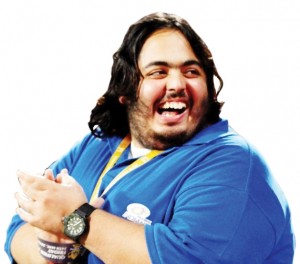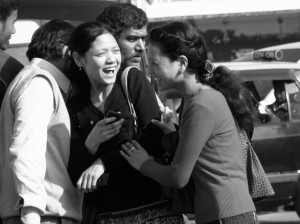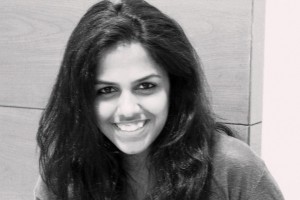With growing apprehensions in our world, we aim to dispel one of the roots of our problems by questioning the stereotypes prevalent among the youth of our nation
 “Indian youth do not discriminate. We are more open-minded than our parents.”
“Indian youth do not discriminate. We are more open-minded than our parents.”
“Young India does not believe in the artificial barriers of religion, caste and colour. That’s old-fashioned.”
Every generation ridicules the conventions of the previous generation while unquestioningly following its own – this applies, more than ever, today. While the youth of India strives hard to carve out its own identity, boot out the old and ring in the new, it is worth introspecting and finding out if we really are quite as unbiased as we would like to believe.
Stereotypes are rife among today’s generation also; despite being taught about equality since elementary school, old prejudices seem to linger. What is worse is that new prejudices have also begun asserting themselves – whether it is dressing styles or lifestyle choices, undue judgement is alive and kicking.
Why is it that young India, despite all its talk of social liberty, stereotypes away merrily? We found that with these stereotypes away merrily? We found that with these stereotypes, people do not realise the amount of harm they may be causing. After all, if this behaviour grows, there’s nothing stopping it from not staying simply at the individual level and eventually pitting social groups against each other on a national level.
What is important to acknowledge is that while it is young India that perpetrates these stereotypes, it is also young India that is at the receiving end. In fact, very often victims of stereotypes have their own stereotypes against the other group – and once this cycle of retribution starts, it is very difficult to stop it.
We take a look at some of the more prevalent stereotypes among youngsters today and how tthey affect victims. Our hope is that the brand-sporting, smartphone-wielding, rights-demanding youngster identifies the stereotypes they unknowingly promote, and questions themselves every time they act out of prejudice.
Your roommate is a Muslim? Be careful, be might cause trouble. After all,
MUSLIMS ARE EXTREMISTS.
I have a set of friends whose basic form of entertainment is to make fun of each other. Normally it is fine, I don’t have a problem because everyone insults everyone and it is taken in a good spirit. But every joke directed towards me is about violence and anger. I’m not a violent person, but still I will be told, “Go fight with someone because that’s what your people do.” Why should I have to face this because of misunderstandings about my religion? If my nose is too long then make fun of me for that. But there’s no need to talk about my religion unnecessarily.
– Shaaz Rizvi, Freelance cinematographer
 THE STEREOTYPE
THE STEREOTYPE
If a Muslim does anything pertaining to his religion, like growing a beard or wearing a skullcap, he gets viewed with suspicious eyes. Muslims are fanatics, often resort to violent behaviour. There are people who even resort to statements such as “Muslims are aggressive because they eat a lot of meat and it acts on their psychology”. A word of caution is uttered while forming close ties with people from the Muslim community.
THE BACKLASH
*Muslims face most prejudice when travelling internationally. Their visa applications are doubly scrutinised and some are even rejected during times of an international terrorist incident. At airports, Muslims and ‘Muslim-looking’ people are singled out for additional security checks.
*Muslims have unfortunately become the first point of blame for any aggravated act or attack on society. Even before investigations can determine if the act was terrorist in nature and which group carried it out, people (and the media, to a certain extent) are quick to assume that it is a ‘Muslim act of terror’.
*A Muslim thinks twice before naming his business, out of fear that it may get targeted during unfortunate incidents like communal riots.
*Getting jobs is yet another challenge for Muslim people, despite having all the necessary credentials. There are employers who are still wary of recruiting Muslims.
*Dating and/or marrying a Muslim is still a major point of contention for non-Muslims. Parents often advice their children that they “can marry anyone, as long as that person is not a Muslim”.
*The Muslim community is the only one in India that has to constantly defend its religion and beliefs in public to assure society that it has no ill will towards people of other faiths.
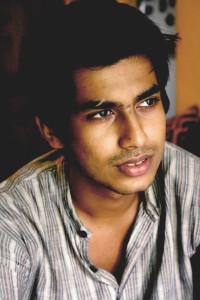 VOICES OF VICTIMS
VOICES OF VICTIMS
Aaliyah Khan (name changed on request), 19, a resident of Bandra, Mumbai says, “We planned to move to Bandra a few years ago as it would be convenient for the family. The broker showed us a flat which we fell in love with, and planned to purchase. However, we were in for a rude shock. Two days later he called us and told us there were some problems and the flat was not for sale. When my mother asked him why, he said, ‘Abhi kya bolu madam, humko bhi sharam aata hai bolne, par aapke dharm ki vajah se’. We were absolutely dumbfounded, and flabbergasted that such archaic thinking exists in today’s modern times.”
When asked how they coped with it, she says, “We didn’t really have a choice, did we? We simply moved on and looked at other options, and finally did manage to get one in Bandra. The only way one can cope with it is by ignoring it, because there is not much you can do to change the thinking of grown men and women. ”
Mariam Kazi (name changed), 24, says, “After the train bombings of 2006, I was just as traumatised as everyone else. My father was on one of those trains and he had a close shave with death. However, when I went to school a couple of days later, a guy in my class came up to me and said things like, ‘It’s your fault. Your people are doing this.’ and I just looked at him in disbelief. I almost lost my own father in those attacks. How was any of it MY fault?”
When asked how she coped with it, she says, “I was left in a state of shock, but did I confront him the next day. However he said that he was “only joking” and that I need to let it go. It was just shocking to see a teenager in today’s day and age, speak in such a bizarre manner. I know of incidents where kids aren’t allowed to make Muslim friends, simply because of their religion. It probably doesn’t exist as much as it must have about three decades ago, but such incidents do pop up every now and then. The only way one can cope with it is by ignoring them and by showing them that Muslims are just as normal as every other citizen of this country.”
As Aaliyah Khan says, the fact that a person’s religion still matters in today’s world is quite astonishing. It would be ignorant to believe that extremism exists only in Islam. Extremism exists in all faiths and has throughout human history. However, to brand a whole group of people as extremists simply because of a few moronic fanatics is inane. Most of us would agree that Muslims are no different than any other citizens of this country. So why is there a sense of xenophobia? What is the reason for this prejudice? Stereotypes do not vanish overnight, but one can work on it.
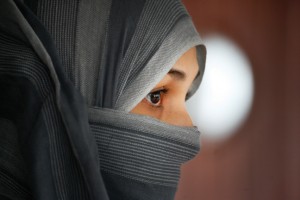 Gordon Allport once famously said, “It is easier to destroy an atom than a prejudice.” Let’s try and prove him wrong, shall we?
Gordon Allport once famously said, “It is easier to destroy an atom than a prejudice.” Let’s try and prove him wrong, shall we?
FACTS YOU NEED TO KNOW
Islam does not condone violence and murder of people, whether they are Muslim or not.
It is not an oppressive religion – women have the same rights as men which means they are also entitled to education, freedom of movement and employment.
Islam is also against forced conversions. The Quran does not accept imposing beliefs on anyone.
Islam has been misrepresented by people who have misinterpreted the scripture, so it is not the religion that makes mischief.
A Goan executieve? Shouldn’t he be a musician or footballer?
GOANS ARE SLACK.
THE STEREOTYPE
Goa is seen as the place to go when you want to put your feet in the air. It is somewhere you can laze around and not take life too seriously because every day is a vacation. Unfortunately, people assume this lifestyle applies to Goans as well and believe that they are easy-going and slack at whatever they do. A Goan will always be drunk and never take anything seriously. In a professional environment, Goans are looked at with a stigma: mainstream careers aren’t meant for them and they will not do a good job in spite of their individual work ethic.
THE BACKLASH
- Goans are known to be refused jobs because employers do not want laid-back employees who will free-ride without doing any work.
- When stopped by police, especially traffic police, Goans are always questioned about drinking irrespective of how sober they may be then.
- Goan women are seen as being easy to court which brings them scorn from men who overstep their boundaries.
- Even in peer groups, Goans are ridiculed for the easy-going lifestyle of their state of origin and tend to be trusted less as compared to other friends based on this prejudice.
VOICE OF VICTIM
Alex Fernandes, a marketing executive who worked in Bangalore for three years, says, “As soon as I joined the firm, there were jokes about how I should be partying instead of working. While I knew they were jokes, I wasn’t comfortable as my managers were around and I didn’t want that to affect their perspective of me. It’s okay at a party but not in an office environment.” Alex narrates another incident. “Once I left work early so I could attend a friend’s birthday. I got an upset stomach the next day because of something I ate and did not make it to work. When I returned, my manager talked to me about how I shouldn’t be drinking so much on a weekday and how I should be more responsible. He directly assumed that because I’m Goan and went for a party, I drank excessively and was hung-over the next day.”
“If you go clubbing, you expect to get hit on by guys but there are lines that should be drawn. I’ve been asked at least thrice by a tourist if he could pay for a dance. A lot of men come to Goa thinking they can have a good time just because the women are a bit more liberal.”
– Gail D’Souza, student
FAC TS YOU NEED TO KNOW
TS YOU NEED TO KNOW
Goa is well known for being a party destination, not just in India but across the world. However, that does not imply that Goans are partying all year round.
Although alcohol prices are relatively cheap in Goa, most Goans report that they do not drink all the time as is expected of them, they only drink on occasion as the rest of the country.
Bollywood has been misrepresenting Goans for many years by portraying them as alcoholics, slack and loose which has seeped as a prejudice into the mindsets of the rest of the country.
Oh no, I’m stuck with a fat person in my team. I’m sure he won’t contribute.
THE STEREOTYPE
Sometimes people are born with a little bit extra. They can be too tall, too hairy or too loud. However, when it comes to physical anomalies, being overweight is a cruel cross to bear. A whole host of misconceptions accompanies excess weight, one of the nastier ones being that fat people are lazy gluttons.
THE BACKLASH
- Chubby kids find themselves the object of ridicule from their peers, from small instances such as being forced to play goalie during footballgames because of the assumption that no fat person can run fast enough to be a striker to larger problems like mockery and bullying.
- As they grow older, people on the heavier side also deal with issues like people assuming that they are lazy and unmotivated.
- Self-image and personal growth also take a hit because of the constant bombardment of images of thin people by the media which has unfortunately become the standard of beauty.
VOICE OF VICTIM
Jehan Motashaw, a 22-year-old student of hotel management, shares his plight. At 130 kilograms, he isn’t slender by any means, but would still call himself an active person. “I’m up early every morning and I go to the gym twice a week and have taekwondo thrice a week,” he says. Motashaw attributes his weight to his parents being fat as well as his love for red meat and his chosen profession. At no point does laziness figure in his frank self-assessment.
None of this prevents others from labelling him as lazy, though. Motashaw narrates an incident that occurred while he was applying to a prominent Mumbai hotel for a job in the front office department, “Though the interviewer never said I was fat, he told me he thought I was not as active as other candidates and that I wouldn’t be good for the public image of the hotel.”
Sometimes it’s a job interview, other times Motashaw has to deal with airhostesses offering him seatbelt extenders before he even takes a seat in a plane. “The normal seatbelts fit me. If I was any fatter, they wouldn’t; but they do and it’s embarrassing to be offered the extender,” he says.
Incidents like these occur regularly in the lives of those who are considered fat. For Motashaw, the best response is to ignore them. “Most of the times there’s not much else to do because no one will say anything [about his weight] directly,” he says. A thick skin goes a long way in shrugging off these annoyances.
FACTS YOU NEED TO KNOW
Being fat is not something that can be blamed solely on laziness. There are a host of other reasons that contribute to this condition: genetic inheritance, diet and other factors like hypothyroidism and other growth defects. Case in point: Mukesh Ambani’s younger son Anant Ambani. Anant became the butt of jokes on Twitter after his appearances in IPL matches. He suffered from crippling asthma as a child. The treatment that helped him overcome the condition comprised steroids which affected his body size. His large frame is thus a result of an illness, not a certain lifestyle.
To say that all fat people are lazy is like saying all men are chauvinists; it might be true in some cases, but it depicts the ones who aren’t in very poor light.
Being complacent is not a physical condition but a mental one, which affects everyone and not just the overweight. Laziness is an attitude, not a weight category. Instead of classifying a fat person as a sloth, get to know them and then make your decision.
She’s never going to get that job because she has tattoos.
BODY ART IS SO UNPROFESSIONAL.
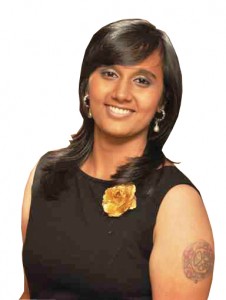 THE STEREOTYPE
THE STEREOTYPE
Though tattoos and piercings are manifesting themselves in our daily lives, they still are regarded as a taboo in the workplace. It is not something that most people associate with professional and office positions. Employers perceive such candidates as too cool for a suit and tie environment.
A survey by Careerbuilder finds that 42% of managers said their opinion of someone would be lowered by that person’s visible body art, 81% think piercings in places other than the ears are unprofessional and 76% believe visible tattoos are unprofessional.
THE BACKLASH
- Ink is synonymous with being rebellious, irresponsible and sometimes even criminal.
- While discrimination along the lines of race, religion, caste and sexual orientation are now punishable offences, discrimination on the basis of body art is not. Visible body art is thus used as an excuse to reject an otherwise perfectly suitable candidate for a job.
- People with body art are often viewed with tinted glasses by society. Even outside an office they are considered unreliable and dangerous. Associating them with alcohol and drug abuse is also commonplace.
 VOICE OF VICTIM
VOICE OF VICTIM
Hiloni Shah, a student at Narsee Monjee College of Commerce and Economics, Mumbai, has one tattoo on her left arm and another just above her right ankle. Neither is visible in her work clothes. This, she says, is intentional. “Earlier I wanted to get a tattoo on my wrist, but my tattoo artist told me that I was very young and people would not take me seriously when I would go for interviews and it will be difficult for me to get a job if my tattoo is visible, that’s why I got a tattoo done on my arm so that it is not seen when I wear formals. In fact, the artist himself had tattoos all over his body but not elbows down to avoid such issues.”
FACTS YOU NEED TO KNOW
Tattoos are a form of self-expression as much as paintings on canvas and words on pages are. The difference is the medium; using the human body as a canvas – it can’t get any more poetic than that.
Terri Guillemets, quotation anthologist, said “Ink to paper is thoughtful Ink to flesh, hard-core If Shakespeare were a tattooist We’d appreciate body art more.”
Tattoo wearers are not necessarily wild, rebellious and wasted. David Beckham, whose body is a walking, living gallery of tattoos, is not only a gifted sportsman, a committed family man who has been married to one woman for 14 years now and has four children.
What would she know about a hard life? She is rich.
“In my family things are not as easy as they seem to the outside world. Things for me are same as for everyone else – get grounded, punishments, earn things, etc. I do not have it easy.” – Kanak Somani, student
THE STEREOTYPE
The rich and the famous have it all. And sooner or later, they pass it on to their kids who have to do nothing but be lucky enough to be born in the family that has everything. Being the son or daughter of a rich person automatically grants more privileges than anyone could ask for, or so is the belief. Everyone tends to think that rich kids have it easy; they just have to waltz their way through life while the rest of us struggle at each and every step.
THE BACKLASH
- Rich kids are looked at with scorn just by way of them being raised in an economically established family.
- Even if a child of a successful man or woman attains success through his or her own means, there is always the stigma of having received a helpful push from daddy or mommy dearest.
- Because of the assumption that rich kids are always spoiled, their peer group tends to either embarrass them for their riches or ostracise them on grounds of them having a higher social status.
VOICES OF VICTIMS
Kanak Somani, a businessman’s daughter who is studying in the United States of America, has this to say, “Many people initially would tell me that because I am a rich dad’s daughter things are simpler for me. Even my closest friends would think the same about me. They used to force me to pay bills on most occasions assuming that I get heaps of pocket money. It used to get really awkward and embarrassing for me. Until one day they actually spent some time in my house. They noticed and appreciated that I had the same moral upbringing as them and the same pocket money as well. Even here so far from home my spending on unnecessary things is limited.”
 CELEB EXAMPLE
CELEB EXAMPLE
Ivanka Trump is the daughter of famous American business magnate Donald Trump. She currently holds the post of Executive Vice President of Development and Acquisitions in The Trump Organization. However, before joining the family business, she earned her position by working her way up in a real estate company called Forest City Enterprises. She also worked as a jewellery designer and enjoyed a successful modelling career before accepting a position in her father’s company. She also featured in a 2003 documentary called Born Rich where she expresses how not all rich children lead an extravagant lifestyle as is the misconception.
FACTS YOU NEED TO KNOW
Studies have shown that successful parents would prefer not to give their children everything they want on a platter. 82% of all the millionaires interviewed for a study in the USA have reported that they believe their children should earn their own livelihood. The survey also showed that 80% of these successful parents believed that learning the values of hard work and integrity was more important than making a lot of money. Seems contrary to popular belief that all rich kids are spoiled, doesn’t it?
Is that Chinky girl
CHINESE OR NEPALI? SHE CAN’T BE INDIAN!
THE STEREOTYPE
People from North East India are called Chinese, Japanese or Nepali either due to ignorance or malice. They are mocked with slurs like ‘chinki’ and often alienated for not speaking Hindi. Locals even try to cheat them by over charging them for products or services, assuming they are foreigners. Sometimes, girls from North East India face difficulties finding accommodation as it is assumed that they are of ‘loose character’.
THE BACKLASH
- I didn’t know that Mumbai had an area called ‘Chinky Nagar’. This seemingly unobtrusive locality is present in all the cities the ‘Chinkies’ migrate to. So who are these ‘Chinkies’? They reside in my city; have an area to their name but cannot be found listed as a tribe, clan, race or ethnic group in any book on Indian demography. Why?
- ‘Chinky’ is a misnomer. It is a moniker given to anybody who belongs to North-East India. Unfortunately it is not the only misnomer North East Indians have been given. Because of their Oriental appearance (small slanting eyes, fair skin and straight hair), they have been rechristened ‘Chinese’, ‘Nepali’, ‘Burmese’ and any other country a hidebound mindset can come up with.
- “We feel hurt if someone calls us ‘Chinky’ or ‘Nepali’. It’s an alienating feeling,” says Manorama Asem, a player in the Western Railway Women’s Hockey team, who belongs to Naorem Leiki, Manipur.
- But it is not only her who feels cornered. A project report by the NESCH (North East Support Centre and Helpline) reveals that 78% of the North-East population residing in other parts of the country is subject to several kinds of humiliation because of their appearance.
VOICES OF VICTIMS
Neelkamal Chhetri, a freelance writer, from Kalimpong has resided for a few years in Delhi. His experience, although pleasurable, was spiked with elements of bigotry. “People in mainland India think that we are backward tribes and have come here to escape the agitation in our parts. They associate us with guerilla warfare. It’s an extremely racist perspective.”
He adds he had trouble looking for a house in Delhi, simply because his appearance rendered him untrustworthy.
Dr Peter Mao, who lives in Lucknow, recounts, “People were wary of my appearance and often enquired about my food habits. They misunderstood me as a foreigner even when I told them I was an Indian. Renting a place was a major problem.” These are comparatively undersized problems. Since 2005, around 96 cases of crime against the North- Eastern residents in the Capital have been reported. The report also claims that social profiling is the root cause of racial discrimination, attack and sexual violence. Official apathy and bias amongst law enforcing agencies are the causes triggering and amplifying the problem.
NOW WHAT?
Firstly, they are not ‘Chinese’, ‘Chowmien’, ‘Hakka noodles’ or ‘Chinky’. They are Indians. And they deserve to live a peaceful, respectable life in any part of their country, just like any other citizen belonging to any other state would. Educated Indians must stop being ethnocentric and must spread awareness about the issue. Let there not be a ‘mainland India’. Let it just be a single land mass comprising the citizens of this country.
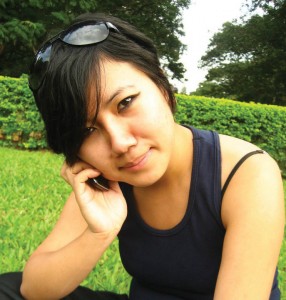 MY EXPERIENCE IN MAINLAND INDIA
MY EXPERIENCE IN MAINLAND INDIA
In my six years in mainland India, I have felt more of an outsider than when I was back home in Shillong. I felt more a part of India then. Being a minority is always some sort of a baggage. Gradually, I have gotten used to it and am now immune to the discrimination and the ‘special attention’ showered upon me, due to my ‘exotic’ features. I’m still very sensitive about it, but I don’t really let it get to me. Take for example, the numerous times random people felt the need to acknowledge my presence by naming some Chinese food items; totally uncalled for. Is that some sort of an Indian cultural thing? Should I start addressing every South Indian looking person as idli, or a North Indian guy as, say, butter chicken? Goan Sausage? Vindalooo? Rosgullas? The extremely distinct features we possess is an easy giveaway making us easy targets for bored racist Indians among us. Let’s not use the word uneducated because being educated doesn’t really stop the stereotyping, name calling and the likes. It’s not probably as bad for everyone, but it is unnecessary and definitely inconvenient. People tend to notice that you are different a lot more when you look different. There many occasions I could go on and on about, and maybe sometimes in their defence, I’m just being too paranoid or taking things too personally. Although to be honest, and being as oblivious as I am, luckily I haven’t had any extremely bad experiences, I know a lot of people who have. Most of us are probably not as loud or aggressive, we do like to be friendly and chill. People mistake our silence and our calm for weakness and fear. But honestly I do wish they would stop. After all, we’re not bothering anyone, so why are you?
– Angela Hanghal, retail professional
FACTS YOU NEED TO KNOW
North-East India comprises seven states, commonly called the ‘seven sisters’. They are Arunachal Pradesh, Assam, Manipur, Meghalaya, Mizoram, Nagaland and Tripura.
These states are home to more than 166 tribes speaking a wide range of languages.
It is recognized as one of the seven most bio-diverse regions of the world. More than 70% of the region is mountainous.
Calling a North-East Indian ‘Chinky’ can land you in jail for five years under the Scheduled Castes and Scheduled Tribes (Prevention of Atrocities) Act.
What guy gets a pedicure? I swear these guys who say they are
METROSEXUALS MUST BE GAY.
“Would you like to see a hairy man with a pot belly and untidy facial hair looking like Mowgli’s father on the ad cover of Levi’s Jeans or as the model of popular Axe cologne? The object of desirability is a clean shaven man with waxed chest, sporting a chiselled body.” – Shubhashish Banerjii, Model
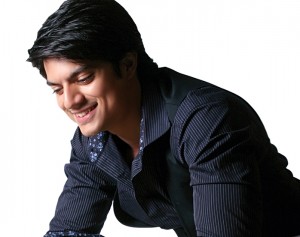 THE STEREOTYPE
THE STEREOTYPE
Metrosexual is a portmanteau of metropolitan and heterosexual for an urban male who is good looking, stylish, fashionable and cares a great deal about his image and looks. With the recent boom in men’s grooming products, metrosexuality has risen and so has the stigma associated with it. Metrosexual men have to face the unfortunate perception of being weak, and effeminate or gay, despite their sexual orientation.
THE BACKLASH
- Metrosexuals are often ridiculed in social groups because of their desire to keep themselves well groomed.
- They face objections from their families on grounds that homosexuality shouldn’t be encouraged in spite of the fact they may be heterosexual.
- They receive unflattering stares in public places because society has not grown to completely accept the metrosexual man in India.
 VOICE OF VICTIM
VOICE OF VICTIM
Saurabh Paralikar, a well groomed young adult, has often been ridiculed for taking good care of himself. “I had acne problems a few months back and had to employ the usual home-made techniques like the face pack that my grandma would make me. A lot of my friends laughed at me when I told them and called it “gay”. I don’t think taking care of my skin, hair or the way I present myself to the world makes me less manly than any other man. In fact, many men do it but don’t like to come out into the open about it!” he asserts.
FACTS YOU NEED TO KNOW
Certain metrosexuals are required to be well groomed because of their profession, for example, models have to keep a clean chest because it is the need of the industry.
Metrosexual is a term which has nothing to do with the sexual orientation of the concerned person. In fact, the term is derived from the word heterosexual which is a male who is sexually oriented towards women.
Metrosexuals are men who like to groom themselves well, while homosexuals are males who are sexually attracted to other males, and cross dressers are males who like to wear women’s clothing.
I have never seen her wear jeans or a skirt.
SHE IS SUCH A BEHENJI.
 THE STEREOTYPE
THE STEREOTYPE
Western influence has us believing that following our culture and norms is regressive and westernisation is the ‘cool’ thing to do. So much so that those of us who choose to carry our culture forward are mocked and ridiculed. Victims of this stereotype are many – from those who learn Indian classical dances and art forms, to those who do not indulge in smoking or consuming alcohol, to those who are God-fearing or religious, to those who abide religious norms of not eating meat or onions and potatoes, to those who opt to wear a salwaar-kameez, to those who do not believe in dating or pre-marital sex.
THE BACKLASH
Peer-pressure can affect a person to an extent where he/she picks to change herself over being mocked and ridiculed.
Alienation: At times, stereotyping goes to the extent where people do not like to be associated in any way with the one they are mocking, leading to alienation of the victim.
Bullying: Numerous college ragging cases have been outcomes of this stereotype. A person may have been forced to drink alcohol or puff on a cigarette, if they have refused to do so. There have been instances where students performing a classical dance during college programmes have been hooted at.
Patronised: A number of people often misjudge tradition abiding individuals. They believe that because they respect culture, they will not be street-smart. They also consider them to not be affiliated with contemporary times.
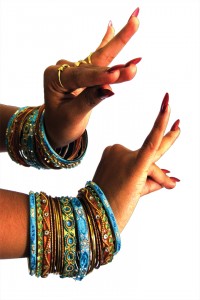 VOICES OF VICTIMS
VOICES OF VICTIMS
Delhi-based Aishwariya Iyer fancies a salwaar-kameez more than jeans. “Delhi is a hot city and wearing jeans is very uncomfortable. If I have the option to wear a salwaar, why not take it?” Iyer believes that she can best associate herself with Indian clothes. “Choosing what to wear is an individual decision and I don’t think it is correct to judge someone only because of the clothes they wear.” But has she ever faced alienation or has been judged? “Well, there are times when my friends call me a behenji and it obviously hurts my feelings, and I sense a difference in behaviour when I am dressed in Indian clothes.” Iyer also finds amusing how people are open to girls dressing up in jeans and not a short skirt but yet mock those who wear traditional outfits.
While talking about how she copes with the occasional mocking, Iyer says, “With time I’ve learnt to ignore it. More importantly, I strongly believe that no one can dictate me to wear particular kind of clothes.”
Harshal Shah, a commerce student, has faced intolerance from his peers for his religious beliefs and practices. “Since I follow Jainism, I do not eat potatoes. Most people find vegetarianism hard to digest, so this is too extreme for them and based on baseless beliefs,” he says. “Any outing with friends guarantees at least three or four comments like ‘You don’t know what you’re missing out on’, ‘How can you still follow those traditions, your parents won’t even know if you cheat’. But it’s not about blindly following tradition, it’s about beliefs and I hope my friends were more accepting of these beliefs instead of focusing on it all the time.”
FACTS YOU NEED TO KNOW
Having an Indian accent means you know more than one language. Dressing in a traditional outfit means being able to carry off more than one kind of getup. Learning Indian classical music makes you capable of advancing better in contemporary music.
Following values does not make you boring, it only reflects that you choose to live in a different way.
You are going to ask HIM out? That’s really desperate. Don’t you know,
MEN SHOULD ALWAYS MAKE THE FIRST MOVE.
THE STEREOTYPE
Men should always make the first move; it is an unwritten dating rule requiring man to always be the one to approach the woman. A woman who is bold enough to express her feelings is labeled ‘desperate’ or accused of ‘coming on too strong’.
THE BACKLASH
*Men bear the undue pressure of making the first move to ask the girl out and face the probability of rejection too.
*Women, though being interested and attracted towards a certain man, have to wait for him to come around and ask her out because she is not able ask him out herself due to the social convention created by the stereotype.
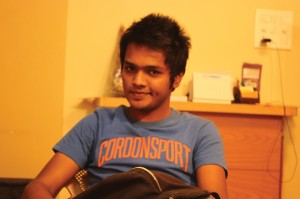 WHEN JULIET TAKES CHARGE
WHEN JULIET TAKES CHARGE
Vikrant, whose girlfriend broke the stereotype and made the first move on him, says, “My girlfriend of two years was the one to ask me out. Though I had feelings for her, I lacked the confidence back then to go and approach her. So, when one fine day when after waiting around a while when she told me how she felt, I welcomed her confession. I was happy she had the courage to ask me out for if not for her I don’t know if the two of us would ever get together or not. So yes, I am glad that she made the first move, it has definitely worked out well for both of us.”
Krutika has no qualms about making the first move says, “I think it’s totally normal if a girl asks out a guy. A girl can’t wait around forever waiting for the guy she likes to make a move; what if he never might? I had asked out a guy once. Though things didn’t work out between us, as he wasn’t romantically into me, we built a strong friendship thereafter and he often tells me how he wishes more girls were gutsy like me to make the first move. He says it would help reduce the pressure on men who are shy when it comes to asking out women.”
If you are interested in someone, just be confident and let them know exactly how you feel. There is obviously the fear of rejection, but that is part and parcel of all relationships. Don’t let it scare you. Be your own person and go for what your heart tells you. Also know this – there are more men out there today than were yesterday who aren’t threatened if the woman shows an interest in them first or makes the first move. Rather, the confidence and the strong will shown by such women is appealing to men.
“This stereotype, according to me, has been made only by over confident men whose ‘ego’ is hurt if a girl makes the first move. Otherwise, in this modern generation, a girl making the first move is considered pretty cool.” – Fatema J.
“The age-old notion of the girl being helplessly locked up in a tower and needing a knight to come save her are changing. Women are, as they have always been, capable of choosing whom they want to be with and as such I think it’s perfectly normal for a girl to go ask a guy out if she so wishes to.” – Savio F.
Don’t waste your education by entering politics because
POLITICS IS FOR THE UNEDUCATED.
“What matters in politics is how dedicated the person is to identify and understand the pressing needs of the citizens and provide effective solutions.”
– Milind Deora,
Member of Parliament
THE STEREOTYPE
Politicians are believed to be shrewd professionals who have no time or space for ethics or morality. Unfortunately, this perception stems from the belief that they are adept at giving long speeches to suit their agenda but have no strong educational background to actually run a country. The layman looks down on the politician in belief that they are uneducated and inept at their jobs because they have received no formal training to fit the bill.
THE BACKLASH
- Despite their political agenda, everything that a politician says is looked as a game being played to better their odds at winning an election.
- People do not believe politicians have the foresight to be able to make the important decisions required to govern a country.
- People generalise a politician’s capabilities because they think they can do better than the official if they were in the same position.
- The media typecasts politicians and slanders them because of the general belief that they are unable to do their job properly.
- Young people choose not to enter politics believing it to be a field for uneducated individuals who cannot be successful in other industries.
VOICE OF VICTIM
Milind Deora, Minister of State for Shipping and Communications and Information Technology, is an educated politician from Mumbai. He says, “Politics is a space where day-to-day decisions have far reaching consequences on the well-being of citizens. An average day involves taking complex decisions which will improve or hamper the growth of a critical industry and affect thousands of people.” This shows that it is obviously an industry where only the well-trained can succeed.
FACTS YOU NEED TO KNOW
Despite the way they present themselves, quite a few politicians are academically established; former Union Railway minister Lalu Prasad Yadav possesses a Bachelors in Law and Masters in Political studies from the Patna University; Chief Minister of Uttar Pradesh, Mayawati holds a BA, BEd and LLB from Delhi University; Mulayam Singh Yadav, former Chief Minister of Uttar Pradesh, holds an MA in political science and a Bachelor of Technology.
THE YOUNG AND THE PREJUDICED
There are several other stereotypes we harbour, from the banal to downright cruel. Jai Vipra rounds up some of the more common nonsense that is ferreted around
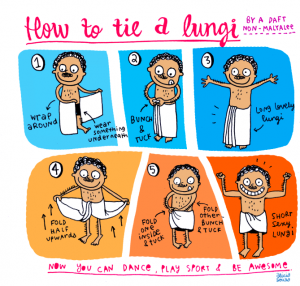 ALL SOUTH INDIANS ARE MADRASIS
ALL SOUTH INDIANS ARE MADRASIS
For Delhiites , “everyone from the south is a Madrasi. And they all wear lungis ,” says Prarthna Suri, a Delhi University student.
PLAIN JANES ARE ‘NON-MALES’
“Only the girls who look good are cal led females. The others a re just ca l led non-ma les. It’s horribly misogynistic, but it exists ,” says Suthirth Vaidya, a student at IIT Madras. Perhaps the biggest stereotype, as Akshay Rangasai, another IIT-M student, puts it, is that “IITians are smart.”
SINGLE IS CRIMINAL
“Staying single is a taboo,” says Sanskriti Khera , who studies Applied Psychology in Delhi University, “People who decide to remain single after a certain age are talked about, and not kindly.”
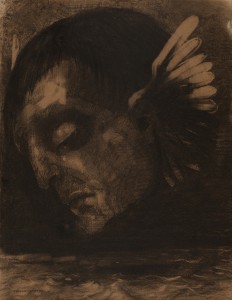 MEN DON’T CRY
MEN DON’T CRY
“Persona lly, let me tell you,” says Rishabh Kumar, who studies at Symbiosis Institute of Media & Communication, “I cry li ke a baby. I know my brothers and male cousins who cry too. A senti mental scene in the film to which men can relate can easily make them cry. It is not for the display for others. I feel bad for the sick and the destitute. I’ve cried while working with adivasis is nor thern Andhra and Chhatisgarh. I’ve cried while working with victims of the Bhopal G as Disaster. It helps me keep in touch with my human side. Crying is a human thing, not a man-woman thing. It is just that male context is different.”
GUJARATIS ARE UNCOOL
“If you’re part of the Gujarati Sahitya Mandal, you’re seen as lame, regardless of the fact that GSM puts up some of the best events in college,” says Nikita Sharma, an economics student at Jai Hind College, Mumbai.
STATE BAORD STUDENTS ARE NOT AS SMART AS ICSE/CBSE STUDENTS
Abhishek Sethiya , who studied under t he Chennai State Board till 10th grade, says , “People seem to think syllabi are dumbed down in state boards. They’re just different! Even my own sisters, who studied under CBSE, thought my boa rd was inferior.” Abhishek eventually shifted to CBSE, and now, he says, he doesn’t “find much of an increase in quality. Besides, multiple boards provide for diversity of opinion ,” he adds .
 MEN DON’T GOSSIP
MEN DON’T GOSSIP
“But we do!” says Anurag Sharma, who studies at IIT Kanpur, “You should see how long we can talk about the girls’ hostels. And about the girls inside those hostels!”
THERAPY IS FOR THE INSANE
Sanskriti also rues that seeking psychological help is still not acceptable . “Even young people fear getting labelled as abnormal and don’t seek help. So many avoidable mental problems are caused due to this,” she says.
ENGINEERS CAN’T SCORE GIRLS
“Firstly,” says Vaibhav Mehta, who studies in JNTU in Hyderabad, “girls in engineering are as sparsely populated as hair on Anupam Kher’s head. On top of that, nobody believes we ca n score. I feel awkward saying it (is this going to be in print?!), but believe me, I have . And so have a lot of my engineering friends.”
There’s no getting away from stereotypes. We all have them about one another. And we all rage when they’re directed towards us. What we have here, like someone once said, is a failure to communicate!
Volume 3 Issue 1





















